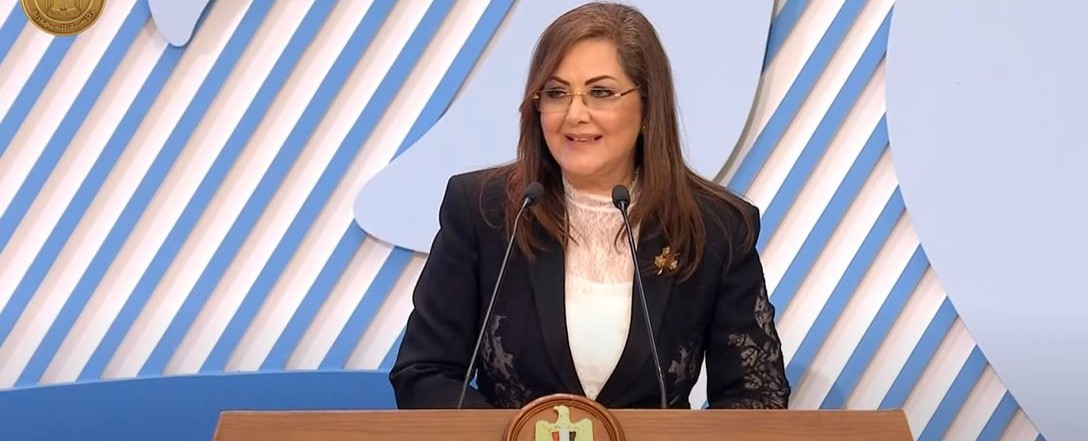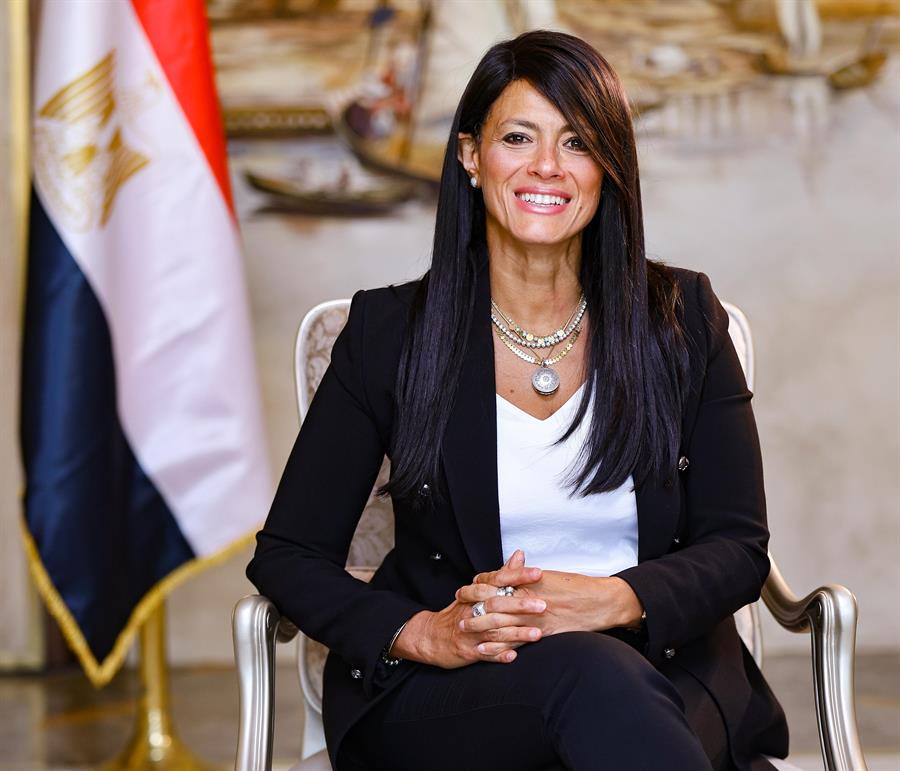Egypt spares no effort in achieving a rapid transformation towards a green economy: Minister of Planning

16 December 2021
Dr. Hala Al-Saeed, Minister of Planning and Economic Development, participated recently via video conference for the second year in a row, t the annual conference of the Euro-Mediterranean Network for Economic Studies (EMNES).
During her speech, Dr. Hala Al-Saeed said that the EMNES conference is a platform for academic research, practitioners, and policymakers, intending to discuss current issues related to social and economic development, and digital integration in Africa, and the Mediterranean region.Al-Saeed affirmed that the discussions that will result from the conference will help in understanding how issues of social and economic development exist and affect the economy at the local and international levels.During her speech, the Minister of Planning and Economic Development indicated that the emergence of the Covid-19 pandemic and its negative effects had led to an urgent need to shift from mere crisis management to finding quick ways to reach an accelerated and comprehensive recovery from it. Al-Saeed added that this was reflected in the rearrangement of national priorities by focusing on providing balanced health and social system and strengthening social protection, in addition to accelerating the process of social transformation.Al-Saeed reviewed the features of the "Decent Life" initiative; Noting that it aims to change the face of life for the better for more than half of Egypt's population in the Egyptian villages and rural areas, with approximately 50.8 million citizens, for $52 billion. Al-Saeed stressed that promoting the role of the private sector is an important matter that aims to enhance flexibility and the recovery process and create more job opportunities.
She further noted that the Egyptian government is supporting institutional reform programs by improving the business climate and enhancing competitiveness within the Egyptian economy.
Al-Saeed also referred to the establishment of The Sovereign Fund of Egypt (TSFE), which aims to enhance added value and support cooperation with the private sector.
Al-Saeed stressed that there is an opportunity to achieve a green transformation by enhancing investment opportunities and economic flexibility.
Al-Saeed pointed out that Egypt spares no effort in achieving a rapid transformation towards a green economy by promoting a participatory approach with the participation of all relevant stakeholders to achieve this transformation.
Al-Saeed said that Egypt is currently working on preparing a national strategy for climate change that confronts all factors of climate change, and is working to encourage the use of hydrogen as a source of energy with low emissions to zero.
Al-Saeed explained that Egypt's Vision 2030 has been updated to comply with any changes at the local, regional or international levels, including population growth, climate change, and water scarcity, taking into account regional changes and the impact of the Corona pandemic.
Dr. Hala Al-Saeed, Minister of Planning and Economic Development, highlighted Egypt's efforts towards implementing several projects to enhance its ability to adapt to climate change.
Al-Saeed referred to projects to protect the northern coasts from rising sea levels, and a project to rehabilitate and cultivate 1.5 million feddans to achieve food security and compensate for land degradation and erosion in the Nile Delta.
Al-Saeed emphasized that all these efforts were carried out using a participatory approach to ensure the effective participation of all relevant stakeholders, including government, the private sector, civil society, researchers, academia, and development partners.
Al-Saeed concluded her speech by referring to Egypt's arrangements for the COP-27 climate summit to be held in Sharm El-Sheikh in 2022.
She explained that the summit will be held within the framework of the recommendations of the Glasgow Summit.









